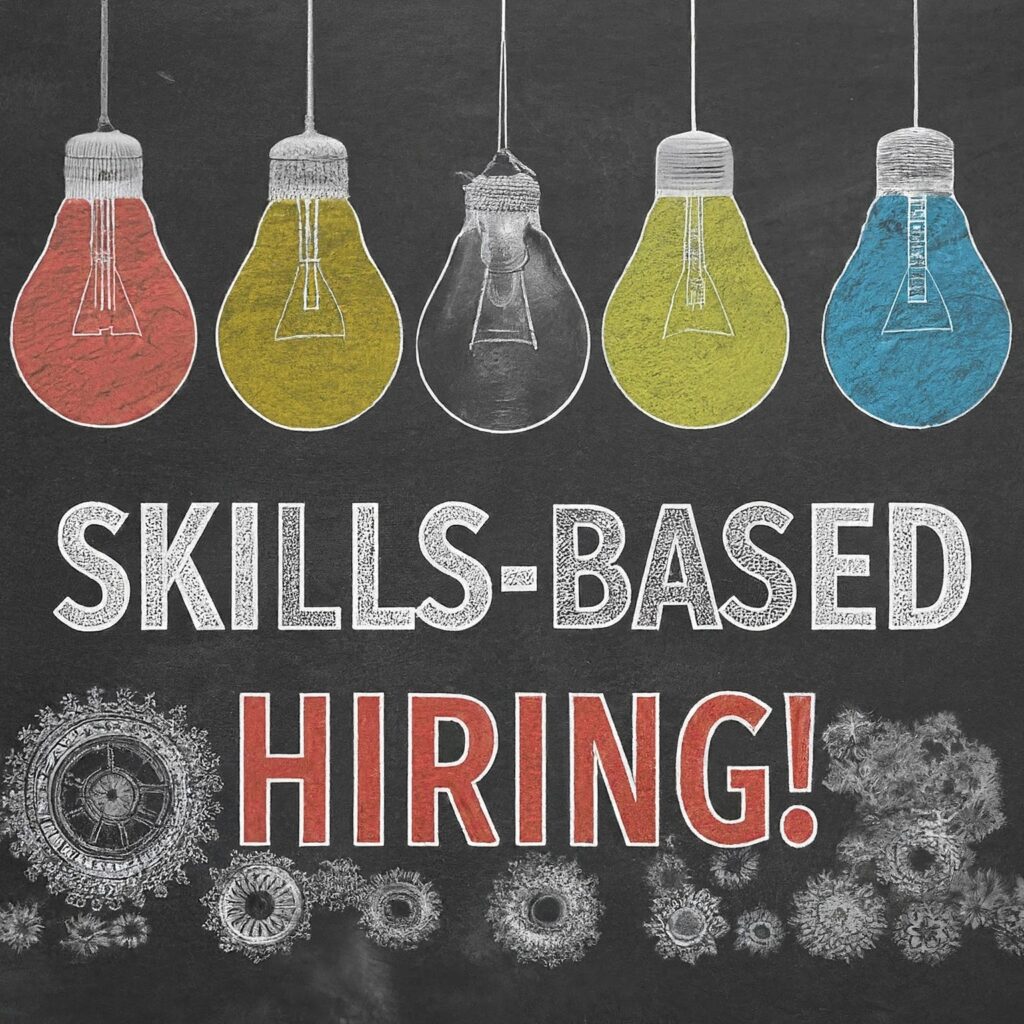The Momentum of Skills-Based Hiring

The landscape of attracting talent continuously evolves, with skills-based hiring becoming increasingly popular since 2019. This method emphasizes the importance of specific competencies over traditional credentials, aiming to create resilient teams capable of thriving amidst rapid technological advancements and the shift towards digitalization.
Understanding Skills-Based Hiring
This hiring approach moves away from traditional resume screening and instead evaluates candidates on their actual abilities. Utilizing online assessments to measure skills allows organizations to broaden their search for talent, uncovering diverse candidates and ensuring a perfect match between an individual’s strengths and job requirements.
The Growth of Skills-Based Hiring
Gaining momentum as a significant trend in human resources by 2019, the COVID-19 pandemic further accelerated its adoption. Organizations, faced with urgent staffing needs, began to prioritize practical skills over other qualifications. A survey revealed that 38% of companies plan to increase their investment in skills-based hiring initiatives.
Driving Forces and Emerging Trends
- Qualification Inflation: The increase in online applications and the aftermath of the 2008-09 financial crisis led to an oversaturation of degrees, diminishing their value and making unique skills the new benchmark for differentiation.
- Equity and Inclusion: By focusing on skills, hiring practices become more objective, reducing biases associated with names, backgrounds, or educational achievements and fostering more inclusive workplaces.
- Adaptability for the Future: As automation and AI transform industries, the ability to adapt and learn new skills is paramount. Skills-based hiring prepares a workforce ready to face future challenges head-on.
Implementing a Skills-Based Hiring Framework
- Assessments: Introduce comprehensive skill evaluations early in the recruitment process to assess practical and technical abilities.
- Behavioral Interviews: Explore candidates’ past experiences to understand how they’ve applied their skills in real-world scenarios.
- Learning Agility: Value candidates who show eagerness to learn and the capacity to adapt, as these qualities are essential for growth.
- Holistic Review: Employ a balanced approach by considering skills alongside cultural fit and value alignment to ensure cohesive teams.
Potential Challenges to Be Mindful Of
- Missing Out on Talent: Solely focusing on skill assessments might overlook candidates who, despite lacking specific skills, could be highly beneficial to the organization.
- Assessment Hurdles: Crafting and interpreting skill assessments accurately can be complex and resource-intensive.
- Resistance and Degree Preference: Some organizations may struggle to move away from traditional degree-based hiring due to ingrained practices.
- Distinguishing Essential from Desirable Skills: Clearly defining job requirements helps in focusing the evaluation process effectively.
In Conclusion
Skills-based hiring represents more than a passing trend; it signifies a fundamental shift in recruitment philosophy. By prioritizing skills, companies are positioning themselves to develop agile, diverse, and high-performing teams that are well-equipped for the future. Skills will continue to be the primary currency in talent acquisition, significantly influencing workforce dynamics in the coming years.
Sources:
- Skills-Based Hiring is Gaining Group | SHRM
- Report: Employers don’t practice what they preach on skills-based hiring | HR Drive
- Right skills, right person, right role | McKinsey & Company
- Competence over Credentials: The Rise of Skills-Based Hiring | Boston Consulting Group
- Skills-Based Hiring Is on the Rise | Harvard Business Review
- The Advantages Of Skill-Based Hiring In India (And How You Can Implement It In 5 Steps) | Indeed
- Employers should use skill-based hiring to find hidden talent and address labour challenges | The Conversation
- HR 101: Let’s discuss skills-based hiring | HR Brew
- The rise of skills-based hiring: Past history and current trends | TestGorilla
